
Turkish Poached Eggs (Çılbır)
Perfectly poached eggs, nestled on a bed of herby, garlicky yogurt, drizzled with red pepper oil, and served with fresh, crusty bread, is one of the most fantastic brunch dishes I know. If you've never tried Turkish Poached Eggs or Cilbir, you've been missing out!
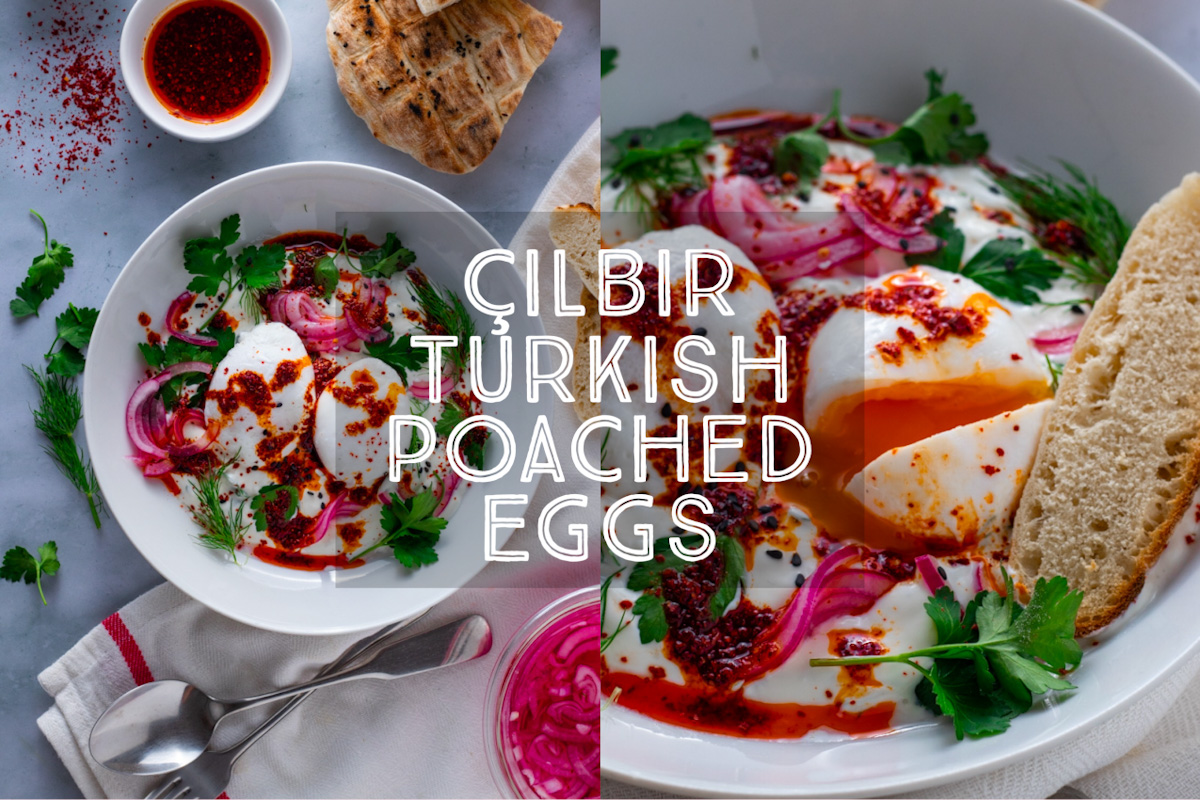
As far as breakfasts go a perfect poached egg has to be among the greats. Nothing quite beats cutting through the white into the gloriously golden runny yolk. Eggs on toast are all very good, but if you want to kick things up a notch, you’ve got to try Turkish Poached Eggs or Çılbır.
TABLE OF CONTENTS
▼
What is Çılbır?
Çılbır is a traditional Turkish dish that dates back to the time of the Ottoman Empire. Let me tell you, it is SO good!
Basically, poached eggs are nestled on top of a plate of herby, garlicky yogurt and topped with smoky paprika oil and more fresh herbs. I like to throw in a few quickly pickled red onions to give it a big pop of flavour and serve it with toasted Turkish-style bread.
It may sound unusual, but Cilbir is one of those ‘oh-my-goodness-this-is-good’ kinda dishes and spectacular to serve for a weekend brunch.
Ingredients
To make my Turkish Poached Eggs recipe, you’ll need the following main ingredients:
- Eggs: Poached eggs are easiest to make with fridge-cold eggs, and using the freshest eggs you can lay (haha!) your hands on is essential. Over time, the structure of egg whites breaks down, which can make poaching a bit of a chore, so look out for super fresh eggs.
- Yogurt: To make Cilbir, you’ll need thick, unsweetened Greek or Turkish yogurt. If you can only get normal plain yogurt, you’ll have to strain it through a clean cloth set in a sieve in the fridge until you’ve reached the required thickness. Make sure the yogurt is out of the fridge for at least 30 minutes before serving, as room-temperature yogurt is much tastier with the eggs.
- Herbs and garlic: Turkish cuisine is full of glorious fresh herbs! Go and buy some big bunches of parsley and dill and use them generously. Not everyone wants to eat garlic in the morning, but it is very tasty in this recipe! A little goes a long way, so I’d start with about ½ a smallish clove.
- Pul Biber / Aleppo Pepper: One of my all-time favourite ingredients and something I always have in my kitchen! Pul Biber is mild or slightly spicy Turkish red pepper flakes. You can replace it with a mixture of paprika powder and mild chilli flakes, but do try to get the real thing if you can!
- Olive Oil or butter: Depending on your mood, you could use olive oil or butter in this dish; both will make a lovely red pepper topping.
- Quick Pickled Onions: I can never get enough of pickled red onion slices! They are great on burgers, but they are phenomenal when served with a dish like this, as they cut through all the richness and the creaminess of the rest. So good!
The complete ingredient list and detailed instructions are in the recipe card at the bottom of the page.
Instructions
When I make Turkish Poached Eggs, I use a fantastic never-fail technique from chef Adrienne Cheatham for perfectly formed poached eggs. It is reliable and means you can poach multiple eggs at a time. If you have your favourite way of poaching, go right ahead.
- Get everything prepared. Slice your onions and submerge in a simple pickling brine of vinegar, sugar and salt. Mix the yogurt with the crushed garlic and fresh herbs, season, then spread the herb and garlic yoghurt over two serving plates so that it can warm up.
- Next comes the unusual technique. Fill four ramekins or teacups ⅓ of the way with white vinegar. Top up to ⅔’s with water, then carefully crack an egg into each. Set aside for 10-15 minutes. This liquid will start to set the egg white, meaning you get perfect, beautiful poached eggs later on. Set a pot of water on to simmer over medium heat.
- Combine the oil or butter with the pul biber in a small pan over low heat. Heat gently for 1-2 minutes, just until the butter has melted and the mixture is aromatic. Set aside.
- When you are ready to poach the eggs, ensure the water isn’t boiling, then carefully tip the eggs one after the other into the simmering water (including the contents of the ramekin). Poach for 3-4 minutes until cooked to your liking, remove with a slotted spoon, blot on a paper towel to remove excess water, then place two on each plate.
- Drizzle the red pepper oil over the top of the eggs, scatter over plenty of fresh herbs, nigella seeds, a pinch of salt and a few forkfuls of the pickled onions, then tuck in with plenty of toasted Turkish-style crusty bread. Afiyet Olsun!
FREQUENTLY ASKED QUESTIONS
Do the eggs taste like vinegar when poached this way?
Can I make poached eggs in advance?
Poached eggs can be made up to two days in advance. You need to prepare a bowl of water with plenty of ice to immediately cool the eggs after you take them out of the pan. Place bowl in the fridge. To reheat, dip the eggs in boiling water for around 60 seconds.
Should I strain my eggs?
It’s popular to strain eggs for poaching through a fine mesh strainer to remove the loose egg whites. You can do this if you are poaching in the traditional way or with the vortex method, though I find it is not necessary with the vinegar bath.
Recipe Card
Turkish Poached Eggs (Çılbır)
Perfectly poached eggs, nestled on a bed of herby, garlicky yogurt, drizzled with red pepper oil, and served with fresh, crusty bread, is one of the most fantastic brunch dishes I know. If you've never tried Turkish Poached Eggs or Cilbir, you've been missing out!
Ingredients
for the onions:
- 1 medium red onion, peeled and finely sliced
- 125 ml white vinegar
- 1 Tbsp sugar
- 1 tsp sea salt
for the eggs:
- 4 large eggs, from the fridge
- white vinegar
for the yogurt:
- 250 g Greek yogurt, or Turkish style, unsweetened
- 3 Tbsp parsley, finely chopped
- 3 Tbsp fresh dill, finely chopped
- ½ clove garlic, crushed
- ¼ – ½ tsp sea salt
for the red pepper oil:
- 3 Tbsp extra-virgin olive oil, or butter
- 2 tsp pul biber or Aleppo pepper, see notes
to serve:
- flat-leaf parsley
- fresh dill
- ½ tsp nigella seeds
- Turkish bread or pita bread, toasted
Instructions
- PREPARE ONIONS: Slice the onions. Mix the vinegar, sugar, and salt in a small bowl until the sugar and salt have dissolved. Submerge the onion slices in the vinegar mixture, topping up with a splash of vinegar if necessary to ensure they are covered. Set aside for 20 minutes.
- PREPARE EGGS (optional): Fill four ramekins one-third with white vinegar, top up to the two-thirds mark with water, and carefully crack an egg into each ramekin. Set aside for 10-15 minutes (see notes for explanation). Place a wine saucepan of water over high heat and bring to a gentle simmer.
- PREPARE YOGURT: Combine yogurt with the chopped dill and parsley, adding garlic and salt to taste. Spread over two serving plates.
- PREPARE OIL: Combine the olive oil or butter and pul biber in a small saucepan. Heat gently for 1 minute or until the butter has just melted, then remove from the heat and set aside.
- POACH EGGS: When the eggs have been in the water/vinegar mixture for 10-15 minutes, they are ready to be cooked. Ensure the water is at a gentle simmer, then carefully tip the eggs and any liquid in the ramekins into the saucepan one after the other. Cook gently for 3-4 minutes until poached to your liking. Remove from the saucepan with a slotted spoon, dap dry on a paper towel or cloth and then place two eggs on each plate of yogurt.
- GARNISH: Drizzle the red pepper oil generously over each plate, scatter over plenty of fresh parsley, dill and nigella seeds and a few forkfuls of red onions. Season with salt and serve immediately with toasted Turkish bread.
Notes
Pul Biber, or Aleppo pepper flakes, is a type of mild chilli flake found in Turkey. If you can’t find it, you can replace it in this oil with a mixture of sweet paprika powder and mild chilli flakes to taste.
EGG POACHING: This method for poaching eggs may seem unusual, but it works incredibly well! I came across the technique via Chef Adrienne Cheatham on YouTube and was instantly converted. It makes poaching larger batches of eggs a breeze. Try it and see! If you don’t have ramekins, use a small cup instead.
Recommended Equipment
As an Amazon Associate and member of other affiliate programs, I earn from qualifying purchases.
Nutrition
Serving: 2eggs | Calories: 452kcal | Carbohydrates: 17g | Protein: 25g | Fat: 30g | Saturated Fat: 6g | Polyunsaturated Fat: 4g | Monounsaturated Fat: 19g | Trans Fat: 0.04g | Cholesterol: 334mg | Sodium: 1652mg | Potassium: 421mg | Fiber: 1g | Sugar: 13g | Vitamin A: 1041IU | Vitamin C: 13mg | Calcium: 217mg | Iron: 2mg
Tried this recipe?I’d love to hear how it went! Please leave a review or a star rating and let me know how it was! Use the hashtag #daysofjay on Instagram so I can see your delicious creations.

About the Author
Jay Wadams is a cookbook author, food photographer, and graduate of Le Cordon Bleu in Gastronomy and Nutrition.
Based in Italy 🇮🇹 Germany 🇩🇪 and Australia 🇦🇺.


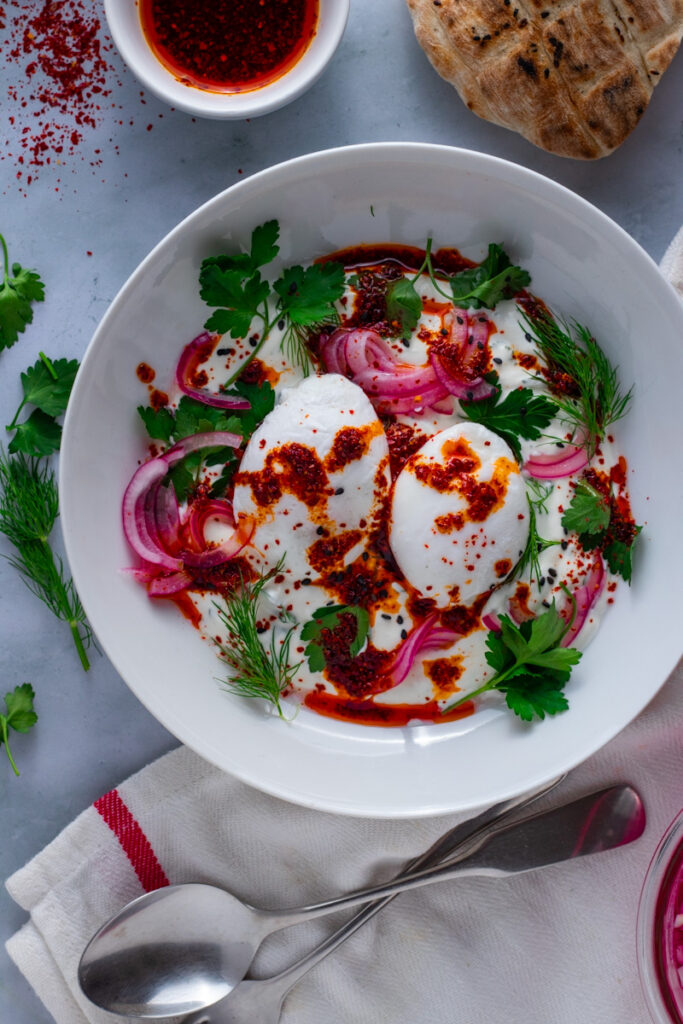
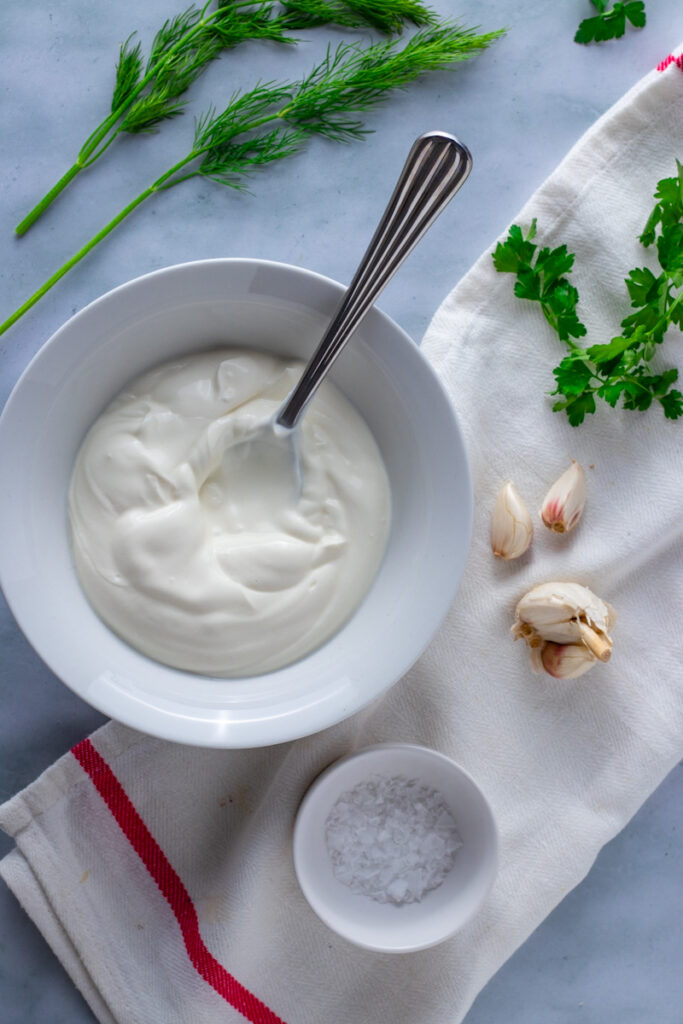
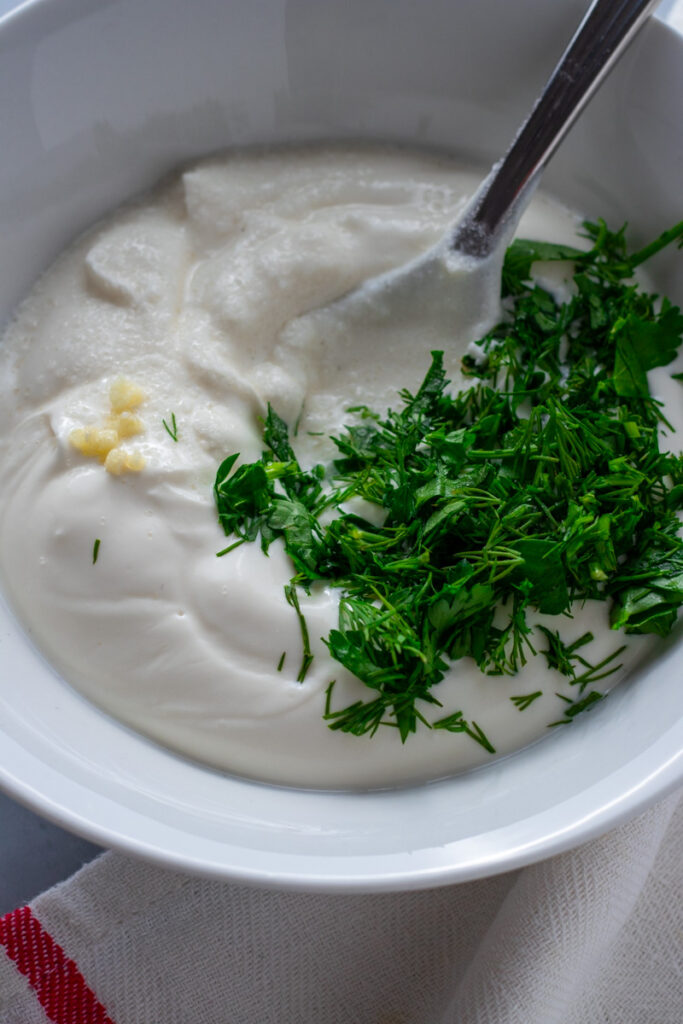
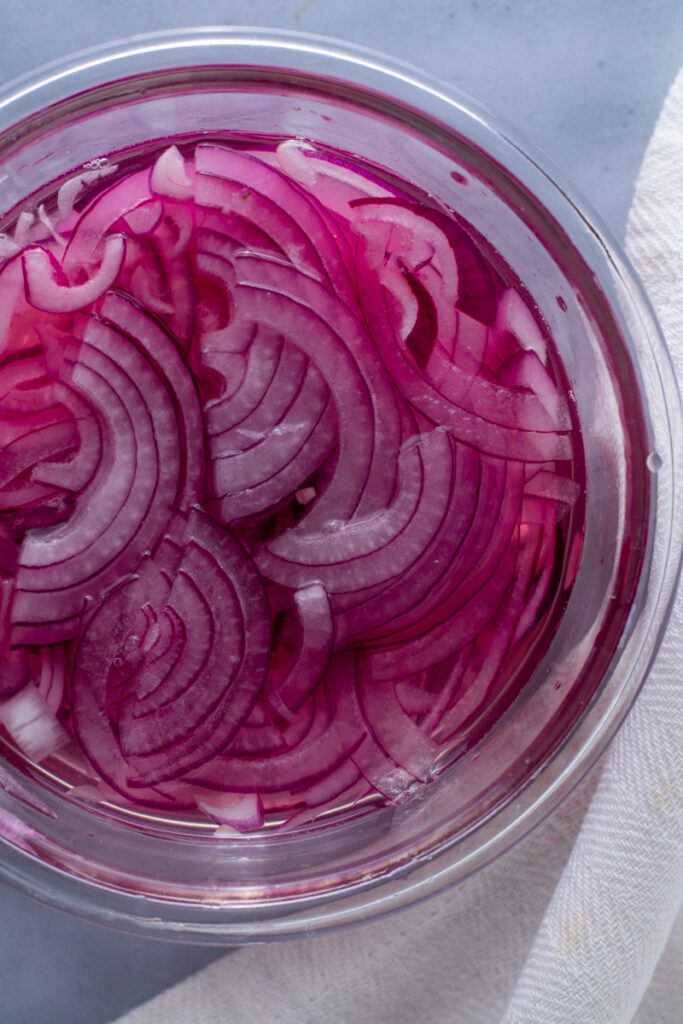
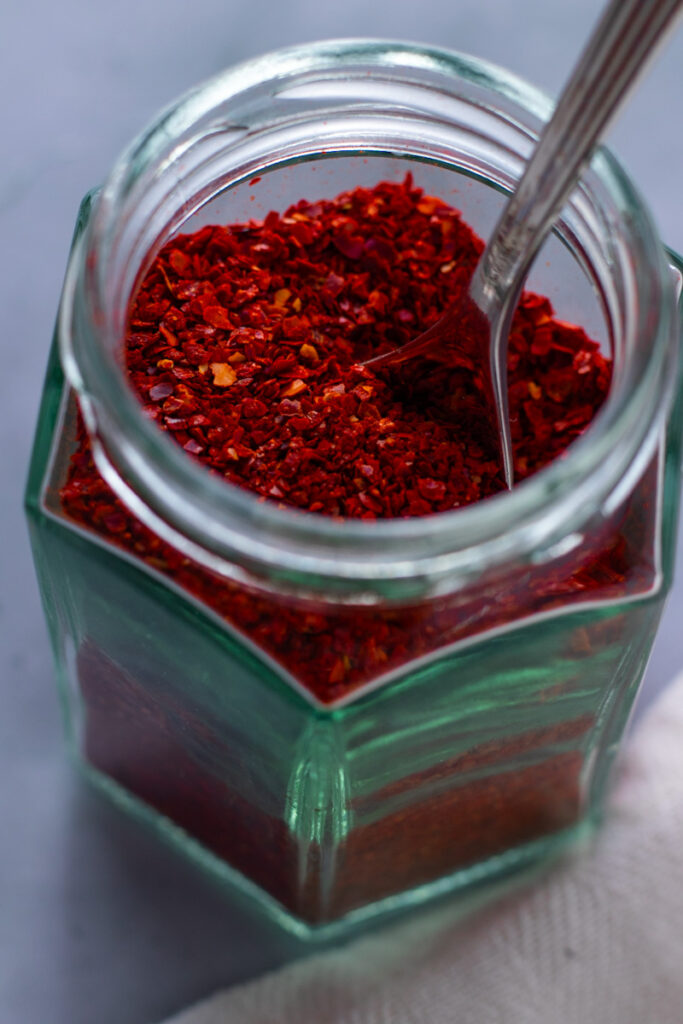
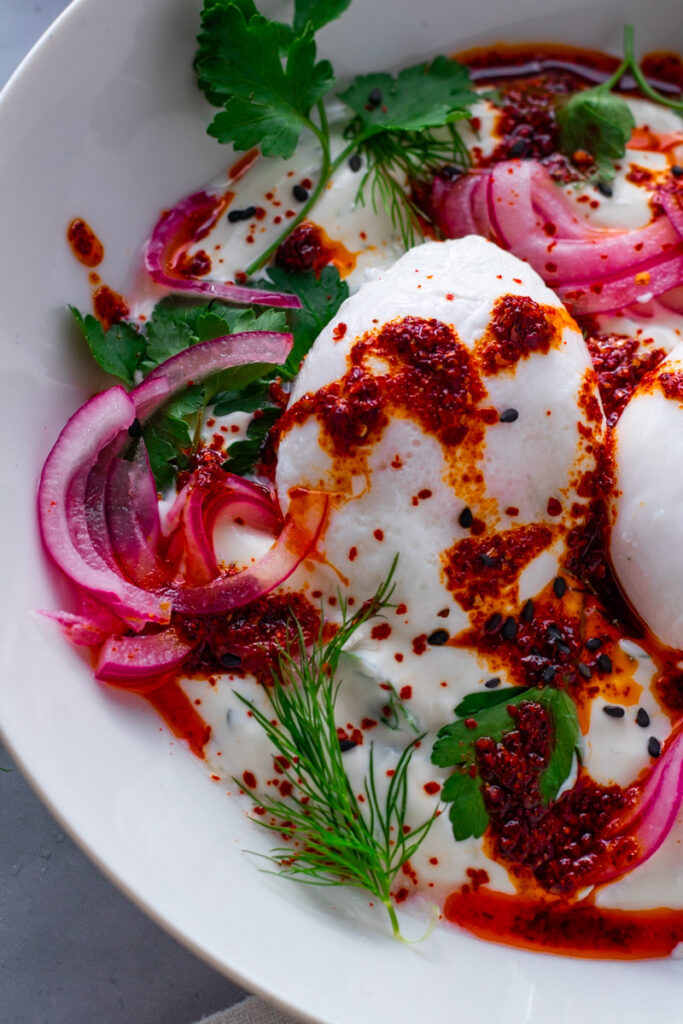
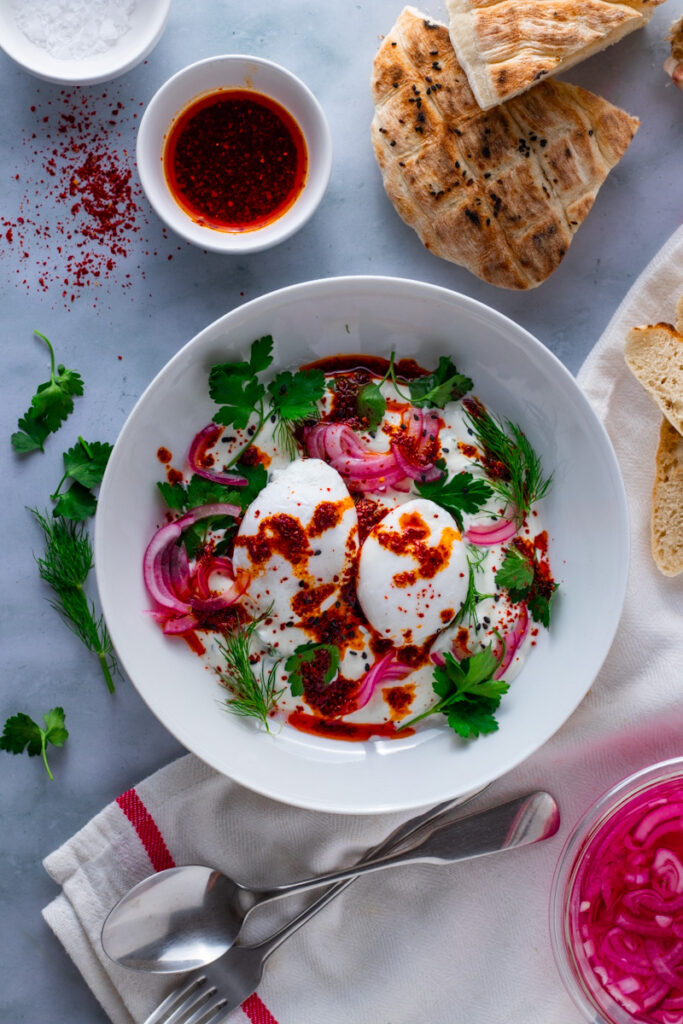
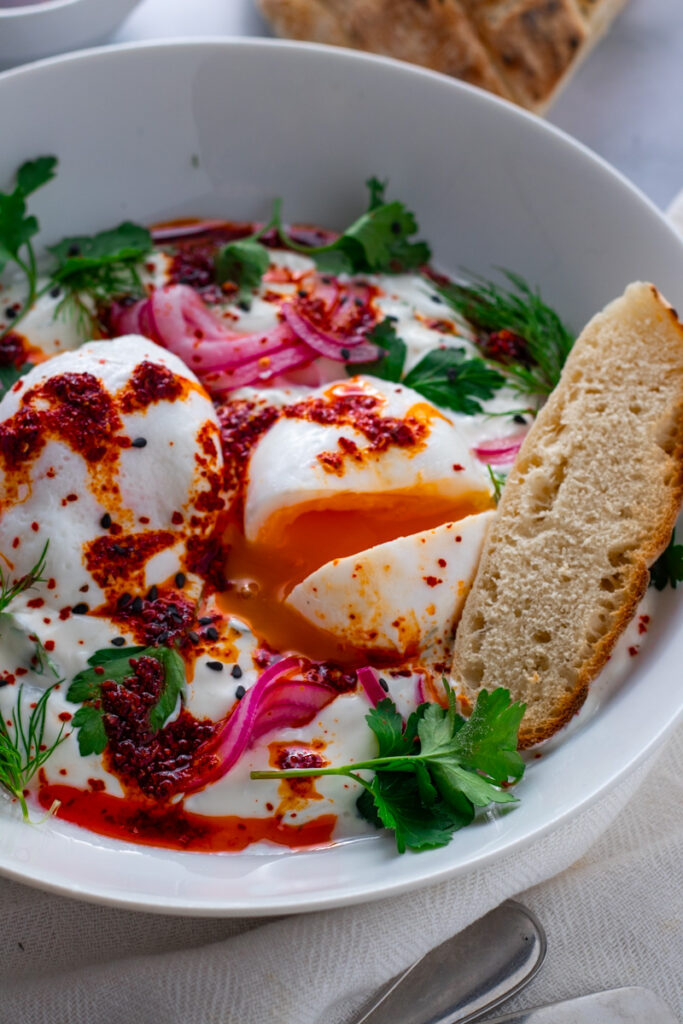
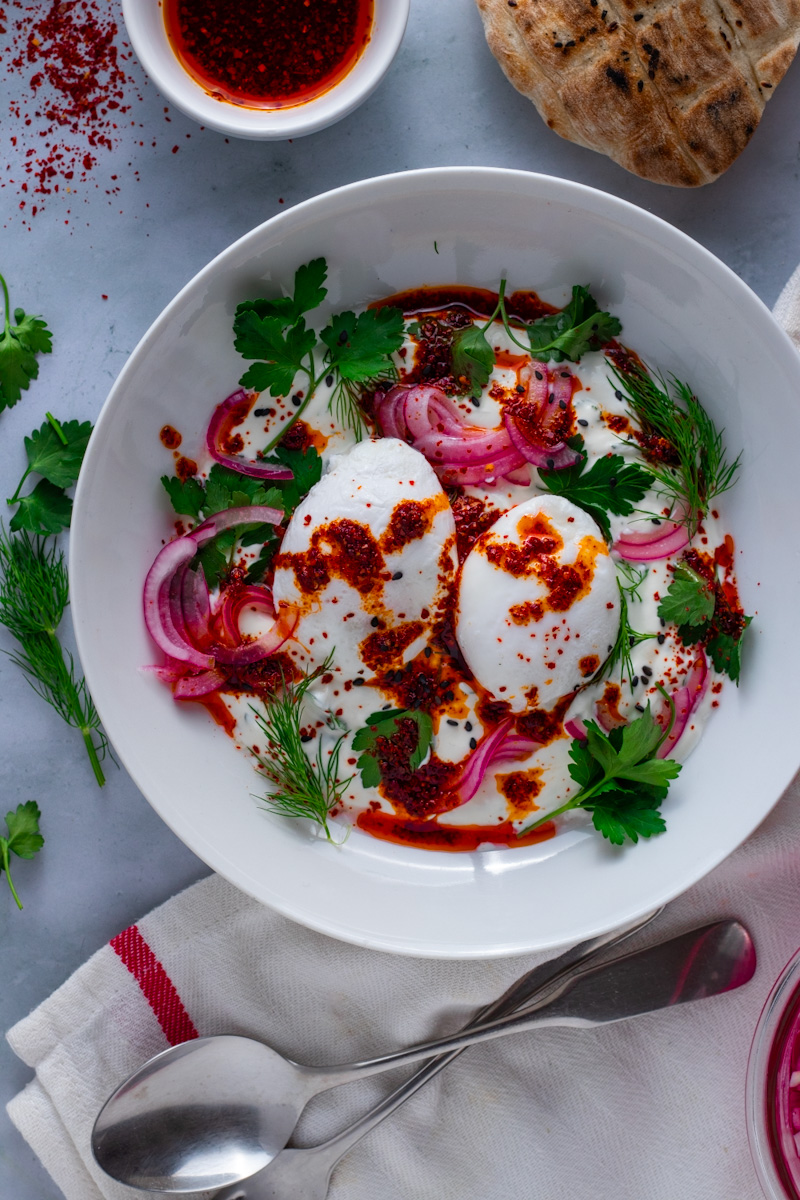






Delicious! 😜 Just divine!
Thank you so much Lucía! These are a real favourite of mine and I am so happy you like them too! J.
Wow, I have been poaching eggs for so many years and these are the most perfect eggs ever! Thank you for sharing!
My pleasure Carol, I am so happy you enjoyed! J.